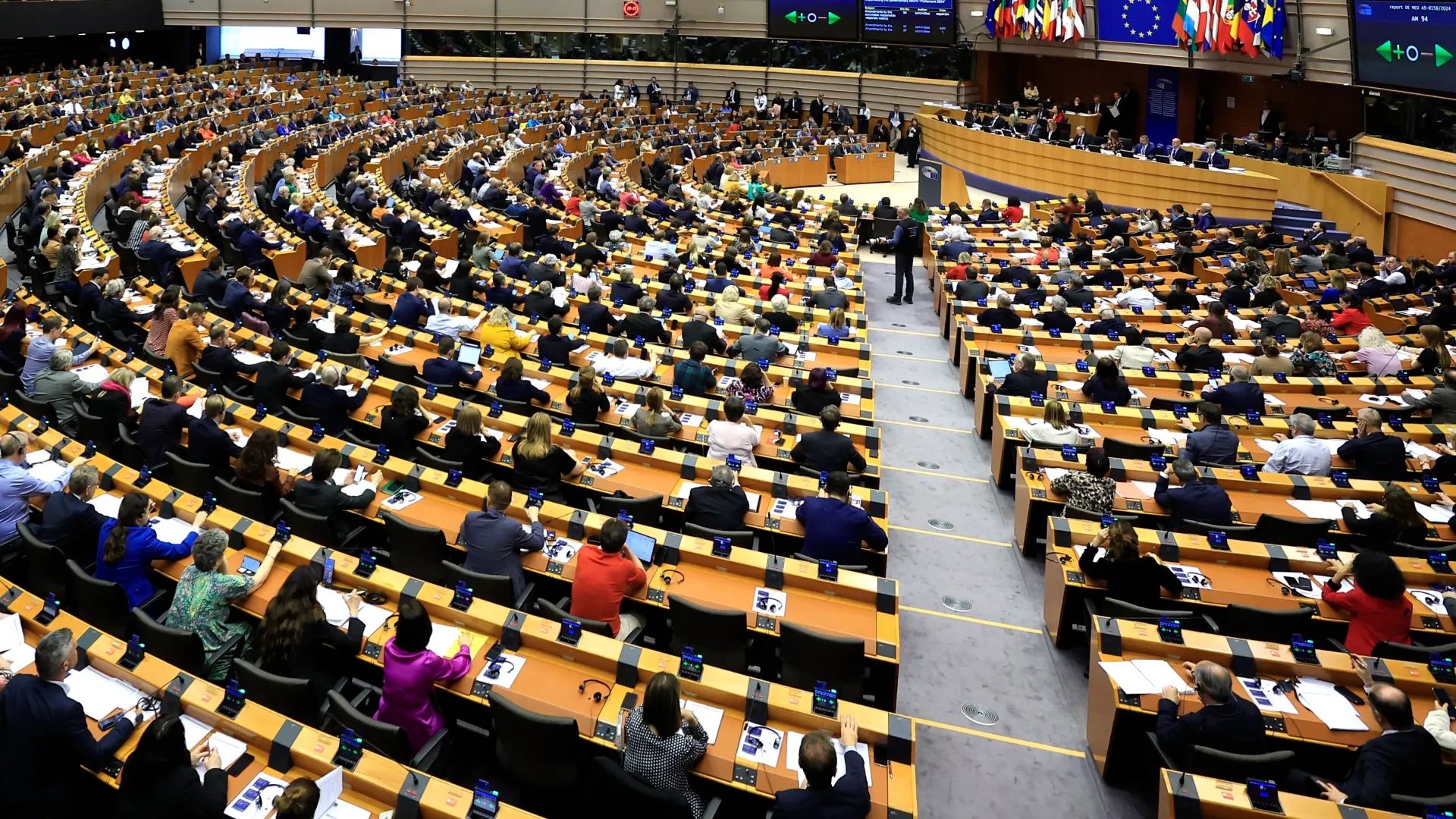European Union implements ban on forced labour products from rights violators like China
The European Council on Tuesday (Nov. 19) adopted a ground-breaking regulation prohibiting the sale of products made with forced labour.
This decisive step marks a significant moment in the European Union’s (EU) commitment to upholding human rights and ethical trade practices.
The regulation, first introduced by the European Commission in September 2022, was driven by increasing concerns over forced labour practices globally, particularly in China’s Xinjiang region, where Uyghurs and other Muslim minorities have faced systemic exploitation.
The new regulation is a critical milestone in addressing forced labour within global supply chains, and it reflects the EU’s broader ambition to align economic practices with its core values of human dignity and justice.
The EU’s decision to act against forced labour stems from mounting evidence of human rights abuses in various parts of the world.
Investigations have consistently highlighted the exploitation of Uyghurs and other minorities in China’s Xinjiang province.
Reports from the United Nations (UN), NGOs, and independent researchers have documented practices such as arbitrary detention, coercive work environments, and the suppression of cultural and religious identities.
These revelations prompted international backlash and spurred legislative actions in major economies.
In December 2021, the United States enacted the Uyghur Forced Labor Prevention Act (UFLPA), banning imports of goods from Xinjiang unless companies could prove they were not made with forced labour.
The EU regulation aligns with this global momentum, signaling Europe’s resolve to combat exploitation in international trade.
The EU Commission’s initial proposal in September 2022 outlined a framework for identifying, investigating, and banning products linked to forced labour.
Over the next two years, the regulation underwent consultations with member states, industry stakeholders, and human rights organisations to refine its scope and implementation mechanisms.
The regulation establishes a robust framework to prevent the sale of forced labour products within the EU market.
The ban applies to all products—imported, exported, and domestically produced—within the EU market.
This comprehensive approach ensures that the regulation targets forced labour at every stage of the supply chain.
Enforcement authorities will prioritise sectors, regions, and supply chains with a higher risk of forced labour.
This targeted strategy focuses on resources where violations are most likely.
Companies are encouraged to adopt due diligence measures, such as supply chain audits and certifications, to ensure their products comply with the regulation.
Non-compliant businesses may face significant fines, product recalls, or bans from the EU market.
Authorities can also provide remedies to victims of forced labour where applicable.
The regulation encourages collaboration with international partners, such as the International Labour Organisation (ILO), to share data and coordinate enforcement efforts.
The EU regulation is expected to have far-reaching implications for global trade and supply chains.
With the EU representing one of the largest consumer markets in the world, businesses worldwide will need to adapt to meet the bloc’s stringent requirements.
The regulation places the onus on companies to prove their supply chains are free of forced labour.
For businesses with complex global operations, this will require significant investment in traceability, monitoring, and reporting mechanisms.
Industries such as textiles, electronics, and agriculture—where forced labour is most prevalent—are likely to face heightened scrutiny.
The regulation will accelerate the adoption of technologies like blockchain and artificial intelligence to track supply chains and verify compliance.
These tools can help companies identify risks, ensure accountability, and build consumer trust.
By penalising forced labour, the EU is creating an economic incentive for companies to adopt fair labour practices.
Over time, this could lead to systemic changes in industries historically plagued by exploitation.
The EU’s ban on forced labour products underscores the bloc’s commitment to protecting human rights on a global scale.
The regulation sends a clear message that forced labour has no place in the global economy.
By targeting products tainted by exploitation, the EU is taking a stand against systemic abuses, particularly those documented in regions like Xinjiang.
By reducing the demand for goods made with forced labour, the regulation aims to disrupt exploitative practices and create opportunities for ethical employment.
Victims of forced labour may benefit indirectly from reduced coercion and increased scrutiny on employers.
The EU’s move aligns with international efforts to promote ethical trade. It strengthens global advocacy for human rights, setting a precedent for other countries to adopt similar measures.
While the regulation is a landmark achievement, it also faces criticism and challenges that could impact its effectiveness.
Trade tensions: The regulation risks escalating trade disputes, particularly with China, which has consistently denied allegations of forced labour in Xinjiang.
China has previously criticised Western measures as interference in its internal affairs, and the EU’s move could strain diplomatic and economic relations further.
Enforcement complexity: Effectively implementing the regulation will require robust infrastructure, cross-border cooperation, and significant resources.
Ensuring compliance across diverse industries and global supply chains is a complex task that could overwhelm enforcement authorities.
Potential backlash: Critics argue that the regulation may inadvertently harm small producers and businesses in developing countries, who may lack the resources to meet compliance requirements.
The EU’s regulation reflects a broader global shift toward ethical trade and corporate accountability.
The European Council’s adoption of the forced labour regulation is a defining moment in the EU’s pursuit of ethical trade and human rights advocacy.
By targeting forced labour products, the EU is not only addressing systemic exploitation but also setting a global benchmark for responsible commerce.
While challenges remain, the regulation represents a bold step toward a more just and equitable global economy.
With continued collaboration, innovation, and vigilance, the EU’s efforts could pave the way for a world where human dignity and ethical practices are at the heart of trade and production.













